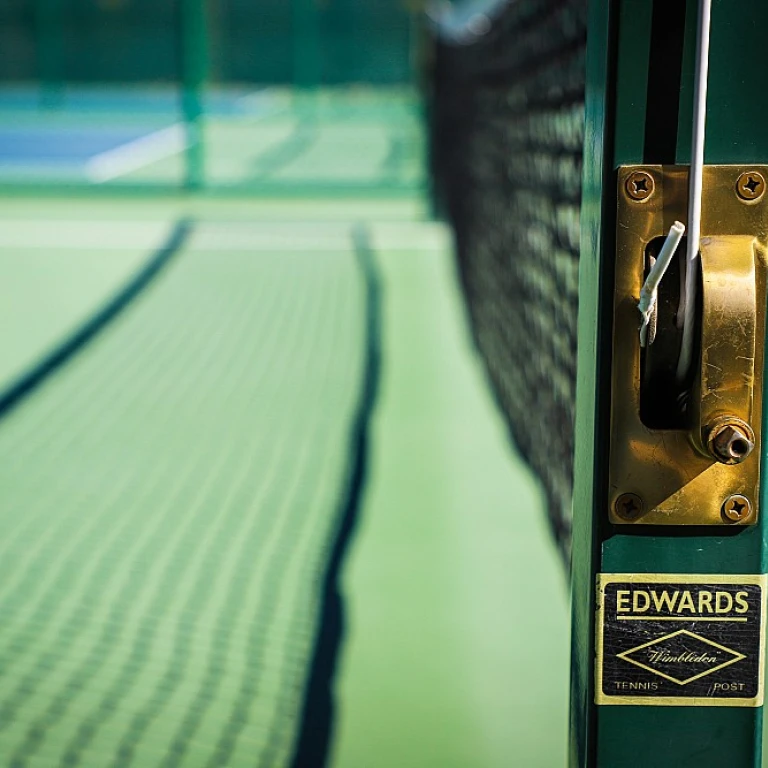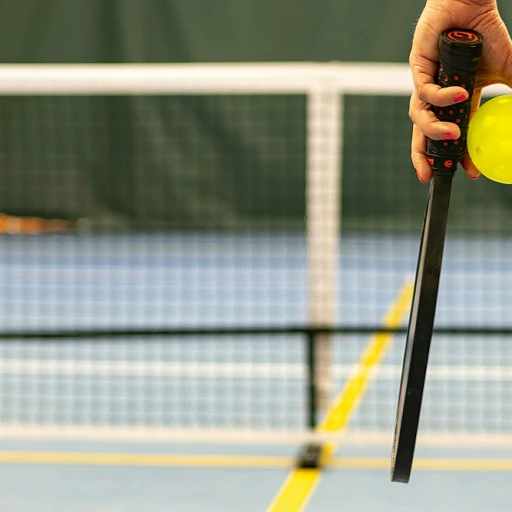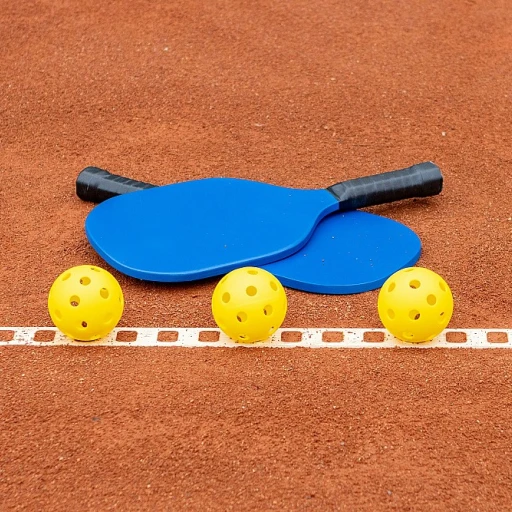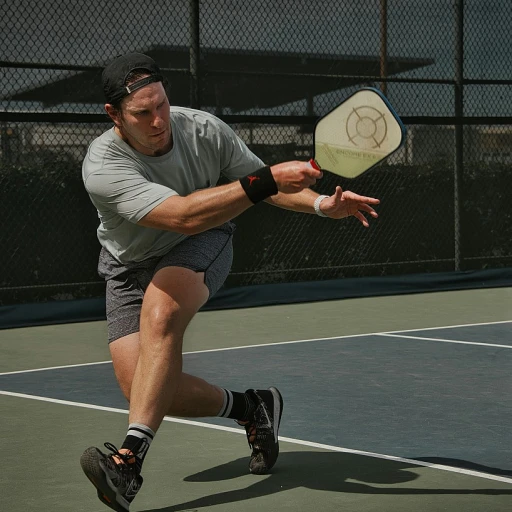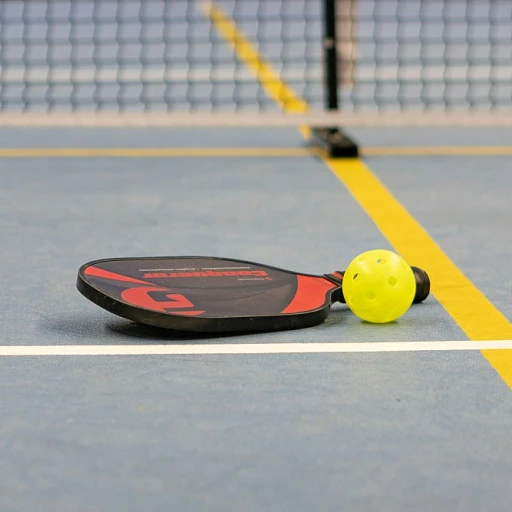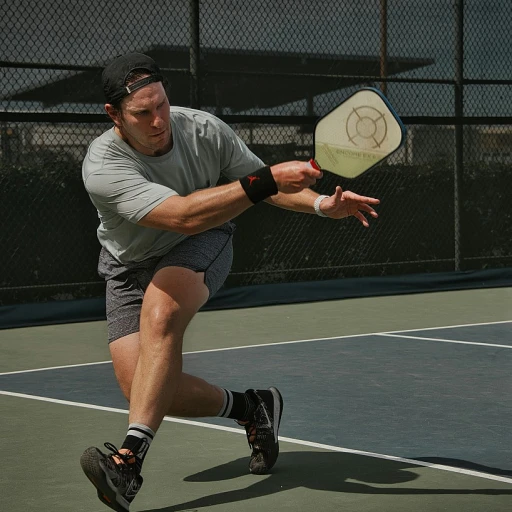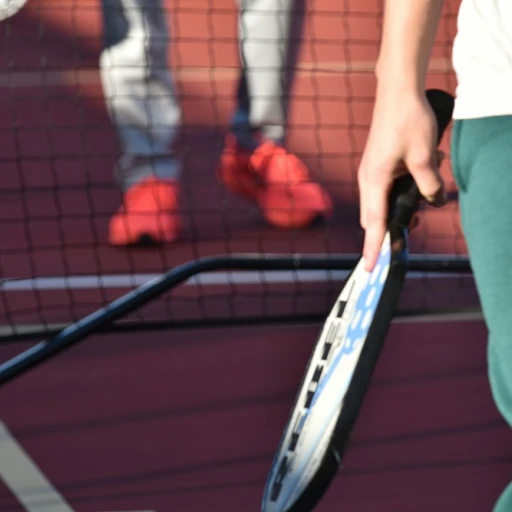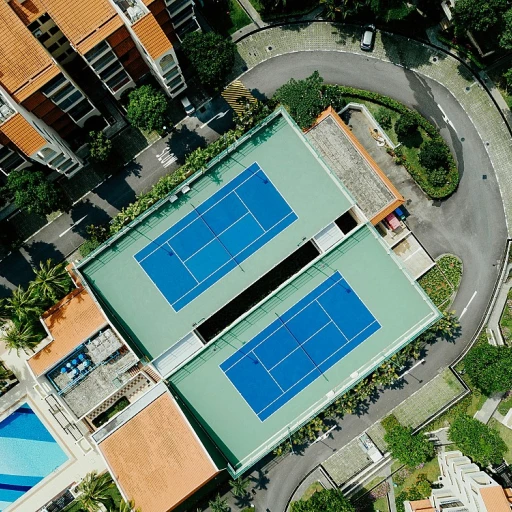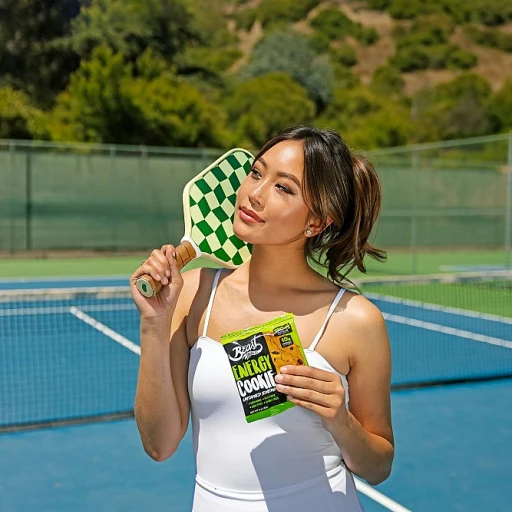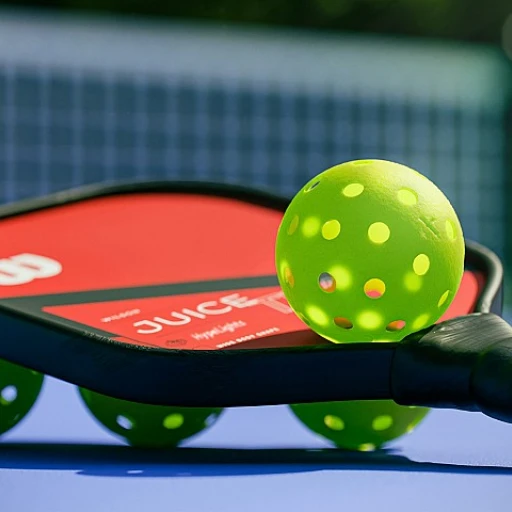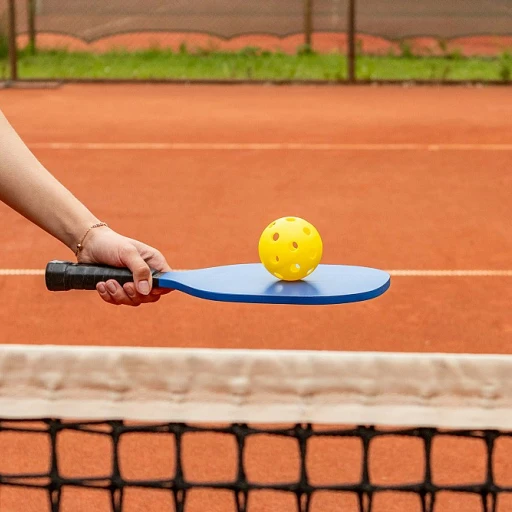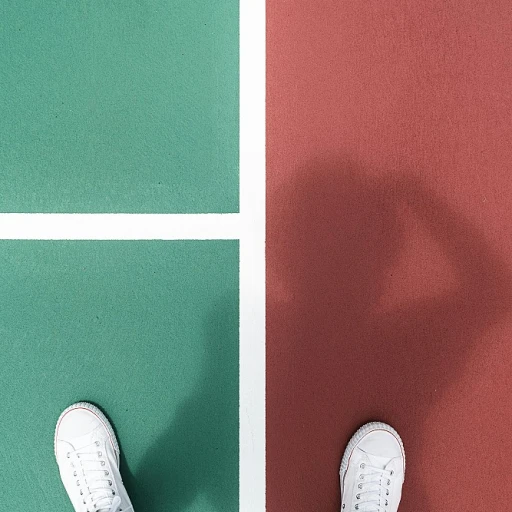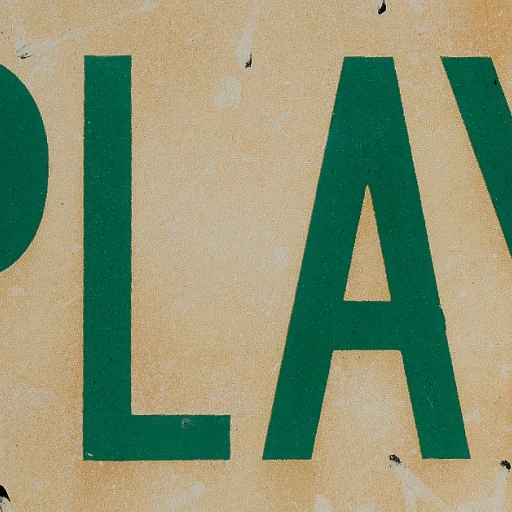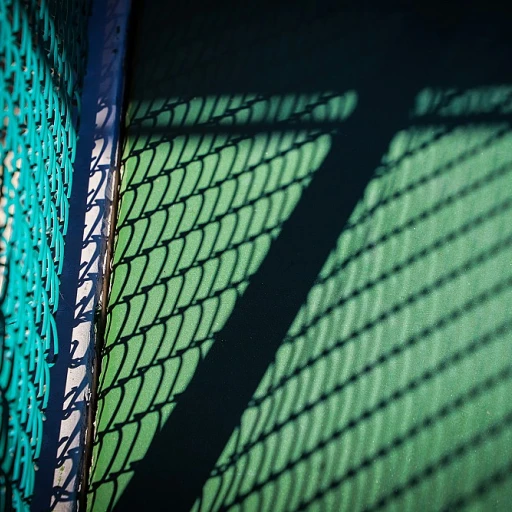
The Rise of Pickleball and Equipment Regulations
The Evolution of the Sport and Equipment Protocols
Pickleball has emerged as a popular sport enjoyed by players across various skill levels, from beginners to seasoned pros. With its growth, the sport has witnessed evolving equipment standards, aimed at ensuring fair play and consistency across matches. As pickleball continues to capture the hearts of many, the regulation of equipment, particularly paddles, becomes essential. Paddles play a crucial role in enhancing a player's performance on the court, and their design, technology, and materials have seen significant advancements. Brands like Joola, Gearbox, and ProKennex are at the forefront of innovation, offering a wide range of paddles such as the Joola Perseus and the ProKennex Black Ace that cater to different playing styles. However, with such innovations, governing bodies like USA Pickleball need to establish specific standards to ensure that none of the equipment offers unfair advantages. This involves assessing paddles for elements such as core thickness, surface roughness, and the coefficient of restitution. Such assessments, like the PBCOR test, help determine whether a paddle should be banned for not adhering to the established norms. Understanding why certain pickleball paddles fall under prohibited categories is crucial for players who want to stay compliant with the sport's regulations. It's not just about performance but also about maintaining the integrity of the game. For more on this, you can explore the relationship between balls and the dynamics of the game, as they too play a significant role alongside paddles in shaping the gameplay experience.What Makes a Pickleball Paddle Banned?
Characteristics That Lead to a Paddle Ban
In the world of pickleball, the rules and regulations around equipment are fundamentally about maintaining fair play while ensuring equipment enhances the skill rather than giving unfair advantages. But what specific characteristics of pickleball paddles make them susceptible to being banned? Let's break it down.- Core Composition and Thickness: Pickleball paddles vary in core materials which include polymer, aluminum, and Nomex. One key consideration is core thickness, which can significantly influence a paddle's performance in terms of control and power. Paddles with a core thickness that doesn't adhere to USA Pickleball standards may lead to their prohibition in official play due to safety and performance disparities.
- Surface Material and Build: The material and construction of a paddle's surface hugely impact gameplay. For example, paddles featuring carbon fiber surfaces might manipulate spin beyond acceptable limits, resulting in being flagged as non-compliant. Paddle brands like Joola and ProKennex also navigate these regulations to ensure their products comply with standards.
- Surface Roughness: Part of what makes a paddle legal or illegal for use involves the surface roughness. The level of grit or texture on a paddle impacts how much spin can be imparted on the ball. The USA Pickleball Association often conducts a PBCOR test, or a surface roughness test, to assess this. Surfaces exceeding approved limits could lead a paddle to be banned.
- Coefficient of Restitution (COR): This factor measures how much energy a paddle can return to a ball, essentially influencing the "bounce" effect. If a paddle exhibits a COR that indicates too much "bounce" or power, it may fail compliance checks. Understanding these dynamics can help players choose appropriate equipment source.
Impact on Players and the Game
The Effects on Competitors and Gameplay
The recent banning of certain pickleball paddles has generated considerable conversation around how these prohibitions impact players and the overall gameplay. The dynamics of pickleball, cherished for its blend of actions and strategy, can significantly shift depending on the equipment in use. Paddles such as the Joola Perseus, Gearbox Pro, and Prokennex Black are often praised for their technological advancements, adding to the dilemma faced by competitive players when restrictions are introduced. One notable impact of banned pickleball paddles is on the competitive edge. Players who have built their skill set around a particular paddle's features, like the Perseus Mod or the Power Elongated design, may experience a learning curve when transitioning to legal alternatives. As a result, performance might initially falter, leading to adjustments in play strategies and techniques. The coefficient of restitution, surface roughness, and core thickness are critical considerations in paddle regulations. When these elements are scrutinized under a governing body's guidelines, some paddles may not meet the required standards. For instance, a Reduction in effective power can occur, influencing how the game unfolds on the court. This is particularly significant for professional players who rely on the precision and power of their pbcored piece of equipment. Furthermore, the psychological impact on players is also profound. Not only must they adapt their physical play, but the confidence in tournaments can be affected knowing popular models like the Prokennex Black and Joola Mod are no longer allowable. A lack of consistency in paddle selection may deter players from achieving peak performance. ule, the regulatory role played by bodies such as USA Pickleball (USAP) ensures fair play across all levels. However, as the game evolves, these regulations continuously challenge competitors to reassess their equipment choices, ensuring adherence without compromising performance. For those seeking to explore the intricacies of paddle selection without encountering prohibited items, it's essential to stay informed about the latest legal equipment, delving into sources like Exploring The World of Pickleball Brackets for further insights.The Role of Governing Bodies in Paddle Regulations
Governing Authorities and Paddle Standards
In the rapidly growing sport of pickleball, governing bodies play an essential role in ensuring equipment standardization and fairness. Among the leading organizations, USA Pickleball (USAP) establishes clear guidelines for what constitutes legal play equipment, making the process of determining which paddles get banned crucial for both players and manufacturers. Pickleball paddles, like the popular Joola and ProKennex models, as well as the Gearbox Pro and Black Ace series, are subject to rigorous testing by these authorities. Standards like surface roughness, core thickness, and the coefficient of restitution (a measure of energy return) are meticulously evaluated to ensure paddles comply with performance requirements. Those paddles that fail these tests risk being categorized as banned paddles, affecting players who rely on them for competitive play. The role of these bodies extends beyond regulation; they also aim to maintain a level playing field across performances. For instance, joola and perseus paddles, known for their power, need to adhere to a maximum power output, which, if exceeded, could influence the game's competitiveness. The recent pbcor test, an innovation by USAP, helps in measuring such factors effectively, offering transparency in decisions that declare paddles legal or banned. Navigating these regulations can be complex, particularly when considering mod and pro enhancements that players often seek. Therefore, it is vital for players to stay informed on the criteria set forth by governing organizations and to recognize the impact that paddle regulations have on the overall sport. Staying updated with these changes ensures fair competition and aligns one's gear with official standards.Controversies and Debates in Paddle Banning
Controversies Surrounding Paddle Restrictions
The stringent regulations surrounding pickleball paddles have stirred significant controversy among players and manufacturers alike. Central to this debate is the balance between maintaining fair play and allowing innovation and performance enhancement. Proponents of regulation argue that standardized paddle rules ensure a level playing field. Parameters such as surface roughness and core thickness, which are scrutinized during the USA Pickleball (USAP) and PBCor tests, aim to prevent any unfair advantage. However, the criteria for what constitutes a banned pickleball paddle have been hotly debated. Paddles like the Joola Perseus, Prokennex Black Ace, and Gearbox Pro, renowned for their power and performance, often come under scrutiny. The balancing act between pushing the technological envelope and sticking to the sanctioned limits is where significant disagreement lies. The controversy extends to how these regulations impact the players. For professionals, the choice of paddle is crucial, akin to how a tennis player's racket affects their game. When a paddle like the Perseus Mod or a Joola Mod is banned, it poses an inconvenience and can potentially alter a player's performance level. Some players and manufacturers, such as those behind the development of paddles like the Pro Power or Black Ace Pro, have voiced concerns that the current testing methods do not account for real-world play scenarios. Meanwhile, modifications, often referred to with terms like "mod" or "modded," create another layer of tension, as players seek ways to adapt legal paddles to mimic the effects of banned ones. These debates underscore the need for continuous dialogue between governing bodies, players, and manufacturers to ensure that the growth of the sport remains both exciting and equitable for all enthusiasts.Guidelines for Choosing a Legal Pickleball Paddle
Ensuring Your Pickleball Paddle Remains Compliant
As the excitement surrounding pickleball continues to grow, so does the importance of adhering to equipment regulations, particularly when selecting legal pickleball paddles. To ensure compliance and avoid potential disappointments, it’s essential to understand which features can render a paddle banned, as discussed earlier in the series.
When choosing a pickleball paddle, consider the following guidelines to remain compliant:
- Check Core Thickness: The core thickness of the paddle plays a significant role in performance. Paddles like the Gearbox Pro and Joola Mod are crafted with precision, but always verify that thickness aligns with current regulations.
- Surface Materials: Many players favor carbon fiber surfaces for their power and feel. Ensure your paddle’s surface roughness does not exceed the permissible limit, as this could impact the coefficient of restitution, leading to a banned status.
- Review Certifications: Look for paddles that have passed the PBcor test—a crucial indicator of compliance. Brands such as ProKennex with their Black Ace and Perseus Mod models often offer PBcor-approved versions.
- Evaluate Power Output: Be cautious with paddles marketed with ‘Pro Power’ features. The balance between power and control must adhere to the standards set by governing bodies like USA Pickleball.
- Stay Informed: Regularly review updates from authoritative bodies. As rules evolve, their input on equipment will guide you to make educated choices ensuring that your paddle, whether it's a Joola Perseus or Power Elongated model, remains within legal boundaries.
Understanding these factors will support your gameplay, prevent the frustration of banned paddles, and secure your standing whether you're play at an amateur level or striving to go pro. Stay informed and equipped to play your best game.

